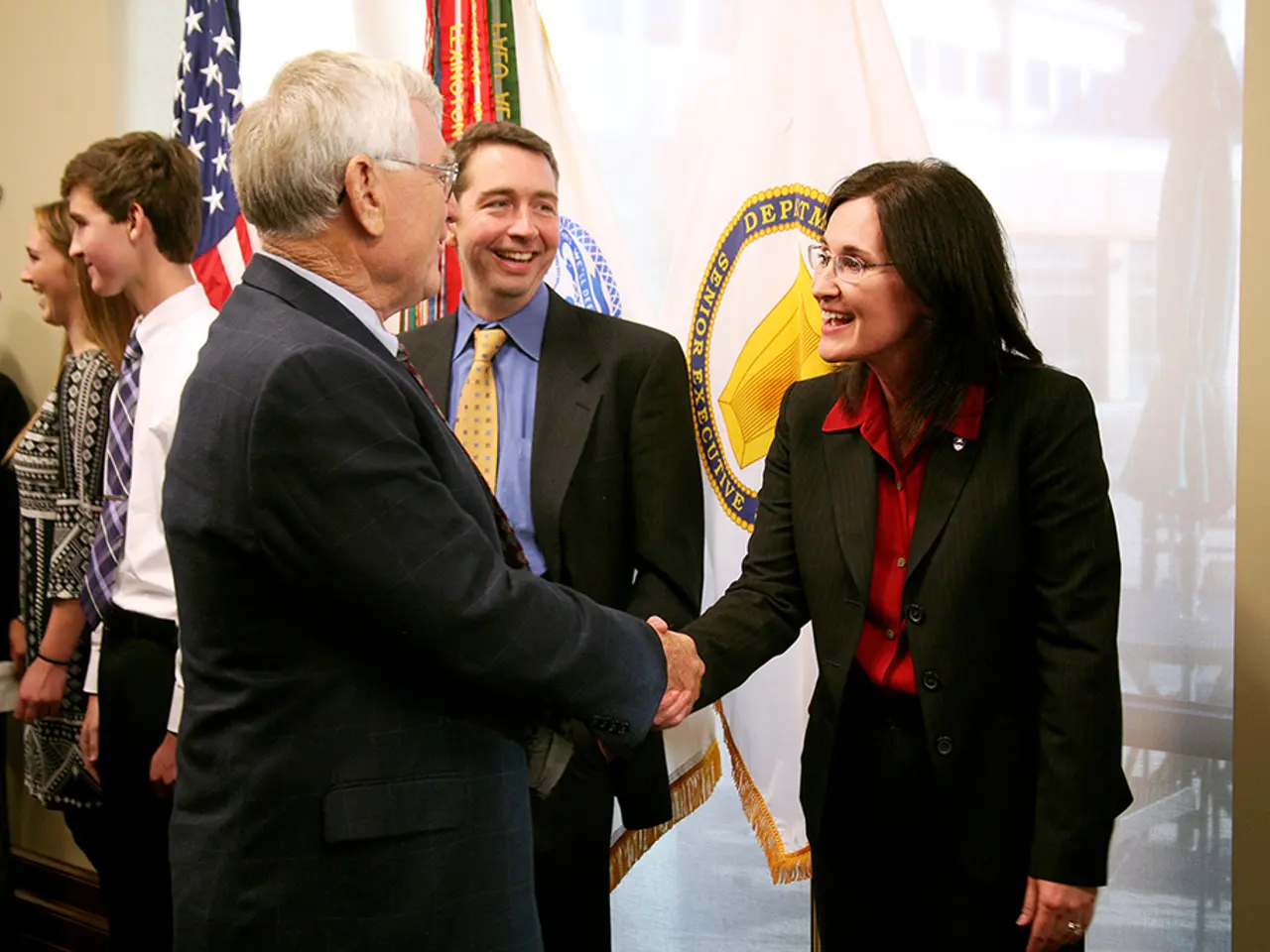Political acknowledgement of Palestine is more symbolic than a strategic move
In a significant development, British Prime Minister Keir Starmer and French President Emmanuel Macron have announced their intention to recognise a Palestinian State. This decision, driven by domestic political reasons, could have far-reaching implications for the ongoing conflict in Gaza and the broader Israeli-Palestinian narrative.
The domestic political drivers behind this recognition include concerns about regional stability, humanitarian consequences, internal political pressures, and a desire to shape a lasting peace framework. The recognition might reinvigorate diplomatic efforts, delegitimize militant control, and pressure Israel towards withdrawal, thereby influencing the conflict's trajectory in Gaza and beyond.
However, it's essential to note that this recognition is not primarily a foreign policy measure aimed at ending the conflict in Gaza or flooding the region with aid. Hamas, a terrorist organisation that has deliberately provoked Israel into an invasion with disastrous consequences for Gazans, could potentially point to a political win from the recognition.
Moreover, Hamas does not actually want a two-state solution. Its goal is to eliminate the Jewish state and establish Islamic rule across all of Palestine. If a ceasefire is not reached before September, Hamas' refusal to lay down its arms, go into exile, or hand over remaining hostages could be rewarded with recognition. This raises concerns that the recognition could potentially embolden Hamas, rather than weakening its position.
The prerequisites of Palestinian statehood - defined borders, a permanent population, a government, and the ability to transact with other states - are not yet met by Palestine. Despite over 140 countries recognising Palestine as a state, there is little cause to think that adding a few more would suddenly make that statehood real.
The UK and France, traditional allies of Israel and members of the G7, are two of just five states that can wield a veto at the UN Security Council. Their decisions to recognise a Palestinian state could reshape the diplomatic framework surrounding the Israeli-Palestinian conflict by reinforcing the two-state solution as the basis for peace and possibly empowering moderate Palestinian leadership while isolating militant groups like Hamas from governance roles.
However, this move may also provoke strong pushback from Israel and its allies, complicating immediate conflict dynamics but potentially altering long-term negotiations. The UK has made recognition of a Palestinian state contingent on a ceasefire in Gaza by September, placing leverage in the hands of Hamas. Hamas has an equal say in any ceasefire and has already rejected a previous deal.
The restoration of a Jewish homeland in Palestine was primarily the work of British statesmen, including then-British foreign secretary Arthur Balfour, who set out the principle in a 1917 declaration. The UK went on to run Palestine and hold the ring for Jewish immigration from 1920 to Israel's formation in 1948. Today's British and French leaders are punishing Netanyahu, as he has continued the bloodshed and destruction in Gaza long after it could be legally or morally justified, strategically explained, or publicly supported.
Europe's faded empires might not be great powers anymore, but the UK and France do carry outsized diplomatic significance for the Levant. French President Emmanuel Macron is seeking to boost his relevance on the global stage and address a strong pro-Palestinian movement at home. Macron has joined 14 other countries at the UN in calling for Palestinian recognition, with a preamble that criticises Hamas and addresses some obstacles to Israeli agreement.
In conclusion, the recognition of a Palestinian State by the UK and France is a complex issue with significant political implications. While it could potentially reinvigorate diplomatic efforts and pressure Israel towards a peaceful resolution, it also risks emboldening militant groups like Hamas and complicating immediate conflict dynamics. As the situation unfolds, it will be crucial to monitor the impact of this recognition on the Israeli-Palestinian conflict and the broader regional landscape.
[1] BBC News, "France and Saudi Arabia propose UN resolution for Palestinian statehood," 16 July 2021, https://www.bbc.co.uk/news/world-middle-east-57886163
[2] Sky News, "Starmer 'ready to recognise' Palestinian state as Labour considers policy shift," 24 June 2021, https://news.sky.com/story/starmer-ready-to-recognise-palestinian-state-as-labour-considers-policy-shift-12408279
- The policy-and-legislation shift towards recognizing a Palestinian State by the UK, as indicated by the Labour Party's consideration on the matter, could be a significant step in the general-news realm, potentially altering the politics surrounding the Israeli-Palestinian conflict.
- The recognition of a Palestinian State by France, as mentioned in a UN resolution proposal, might affect the political landscape of the ongoing Israeli-Palestinian conflict, by reinforcing the two-state solution as the basis for peace and potentially empowering moderate Palestinian leadership, but it could also provoke strong pushback from Israel and complicate immediate conflict dynamics.






